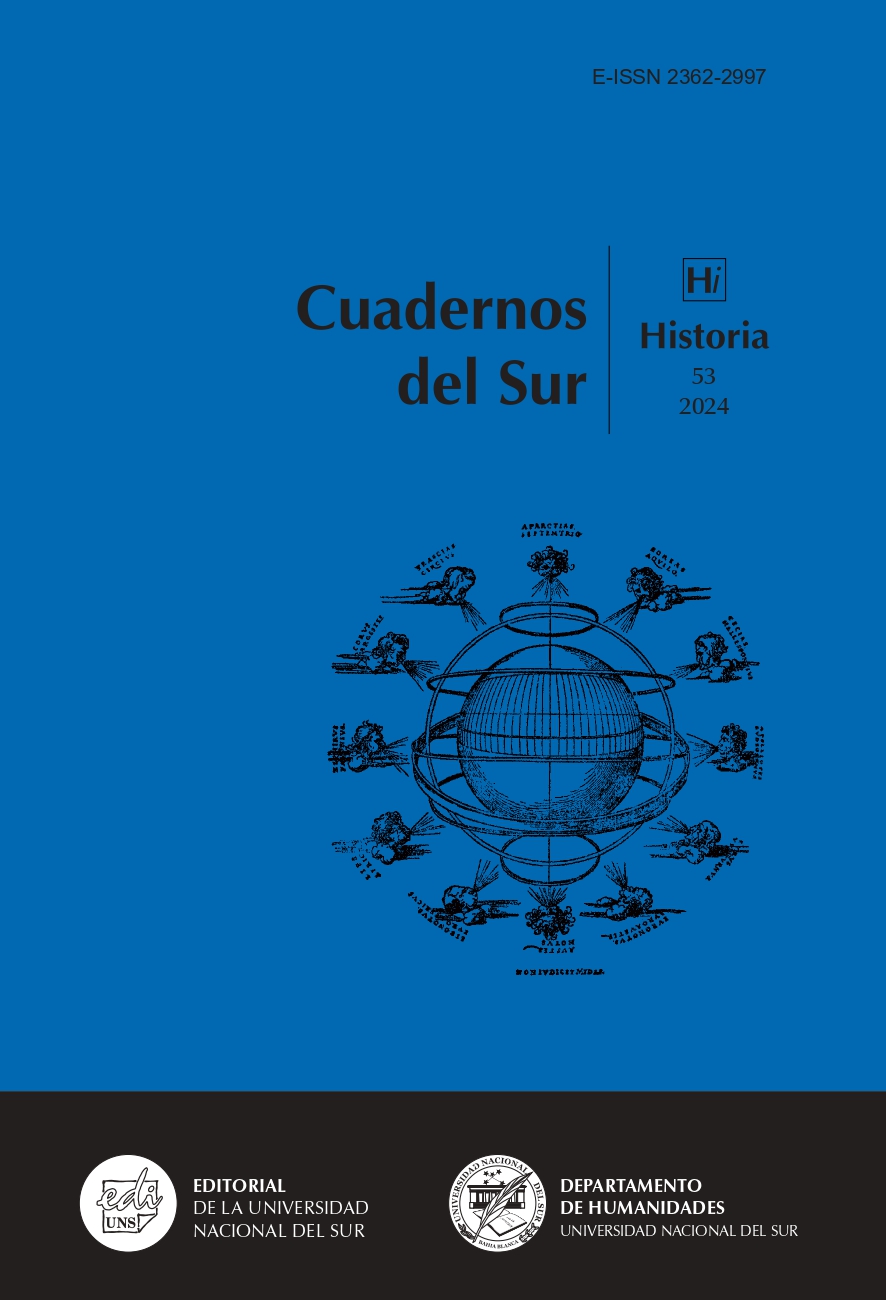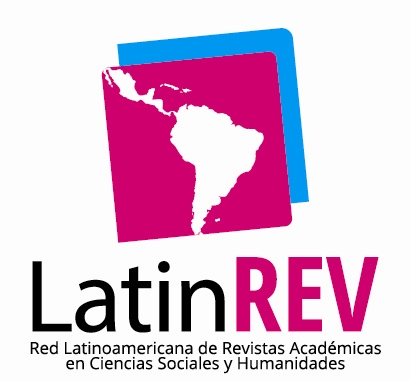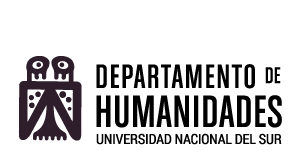Family eugenics in the United States: Paul Popenoe and the American Institute of Family Relations
DOI:
https://doi.org/10.52292/csh5320244895Keywords:
eugenics, United States, Paul PopenoeAbstract
Paul Popenoe was a renowned American eugenicist. As founder of the American Institute of Family Relations (1930), Popenoe dedicated much of his career to disseminating a heteronormative family model, with the intention of influencing social welfare. Although since the 1910s he dedicated himself to spreading practices such as forced sterilization, it was mainly after 1945 that his pedagogical proposal became hegemonic among eugenicists in the United States. This year is usually defined as a turning point for eugenics because the defeat of Nazism exposed the genocidal consequences of the paradigm. Although historiography usually considers that negative eugenics was predominant in the Anglo-Saxon sphere and that positive eugenics prevailed among Latin eugenicists, this differentiation does not correspond to mutually incompatible strategies. This article aims to investigate the hybridization of Popenoe's speeches throughout his academic and media career, which lasted until his death in 1979. Popenoe defended intervention on bodies and eugenic education. It is interesting to understand both models as complementary mechanisms. Popenoe is an example that makes it difficult to generalize his career into the category of negative or positive eugenicist, especially with the emergence of late-eugenics at the end of World War II. This new model sought to separate itself from negative practices but without abandoning the basic ideas that assumed the existence of superior genes or characters, which should prevail over the inferior ones.
Downloads
References
Divorce Hearing (1958), [disponible en https://www.historicfilms.com/search/?q=Popenoe&q=Popenoe#p1t38135i0o1554 - consultado el 27 de julio de 2023].
[Entrevista a Paul Popenoe para “Headline Celebrities”] (30 de diciembre de 1946), Box 166, Folder 29, Paul Popenoe Papers, 1874-1991, Collection Number 04681, American Heritage Center, University of Wyoming, Laramie, Wyoming.
“Estimates of Savings by Sterilization and Parole of Feebleminded in the Two State Institutions for the Feebleminded” [Borrador de The Human Betterment Foundation] (sin año), E. S. Gosney Papers and Records of The Human Betterment Foundation, Archives, California Institute of Technology, Pasadena, California.
Galton, Francis (1883), Inquiries into Human Faculty and Development, Londres, The Macmillan Company.
[Notas del Interstate Television Corporation] (sin año), Box 169, Folder 1, Paul Popenoe Papers, 1874-1991, Collection Number 04681, American Heritage Center, University of Wyoming, Laramie, Wyoming.
[Notas gráficas] (1937-1974), Box 202, Folder 2, Paul Popenoe Papers, 1874-1991, Collection Number 04681, American Heritage Center, University of Wyoming, Laramie, Wyoming.
[Panfleto de The Human Betterment Foundation] (sin año), E. S. Gosney Papers and Records of The Human Betterment Foundation, Archives, California Institute of Technology, Pasadena, California.
[Panfleto de The Human Betterment Foundation] (3 de marzo de 1929), Box 114, Folder 2, Paul Popenoe Papers, 1874-1991, Collection Number 04681, American Heritage Center, University of Wyoming, Laramie, Wyoming.
Popenoe, David (2005), “Remembering my Father: An Intellectual Portrait of ‘The Man Who Saved Marriages’”, en War Over the Family, New Brunswick, Transaction Publishers, pp. 227-243.
Popenoe, Paul (sin año), [Borrador para Can This Marriage Be Saved?], Box 44, Folder 6, Paul Popenoe papers, 1874-1991, Collection Number 04681, American Heritage Center, University of Wyoming, Laramie, Wyoming.
Popenoe, Paul (1915), Marriage is What you Make It, Nueva York, The Macmillan Company.
Popenoe, Paul (1923), The Conservation of the Family, Londres, Bailliere-Tindall & Cox.
Popenoe, Paul (1930), “How Can Colleges Prepare Their Students for Marriage and Parenthood?”, Journal of House Economics, vol. 22, n° 3, pp. 169-178.
Popenoe, Paul (1931-1933) [Serie de conferencias sobre educación religiosa en Los Ángeles], Box 140, Folder 10, Paul Popenoe Papers, 1874-1991, Collection Number 04681, American Heritage Center, University of Wyoming, Laramie, Wyoming.
Popenoe, Paul (1933), “Divorce and Remarriage from a Eugenic Point of View”, Social Forces, vol. 12, n° 1, pp. 48-50.
Popenoe, Paul (1934), “The Principles, Techniques, and Materials of Counseling”, Box 116, Folder 1, Paul Popenoe Papers, 1874-1991, Collection Number 04681, American Heritage Center, University of Wyoming, Laramie, Wyoming.
Popenoe, Paul (1946), Modern Marriage: A Handbook for Men, Nueva York, The Macmillan Company.
Popenoe, Paul (1961), “The Role of Man in the Modern Family”, Church of Brethren Leader Magazine, pp. 4-6.
Popenoe, Paul (12 de abril de 1962) [Borrador para Your Family and You], Box 102, Folder 6, Paul Popenoe papers, 1874-1991, Collection Number 04681, American Heritage Center, University of Wyoming, Laramie, Wyoming.
Popenoe, Paul y Cameron Disney, Dorothy (1960), Can This Marriage Be Saved?, Nueva York, The Macmillan Company.
Popenoe, Paul y Roswell, Hill Johnson (1933), Applied Eugenics, Nueva York, The Macmillan Company.
Bochicchio, Ana Laura (2020), “Maternidad republicana durante la Guerra Fría en Estados Unidos: amas de casa, anticomunismo y racismo”, Huellas de Estados Unidos. Estudios y debates desde América Latina, n° 18, pp. 44-64.
Carlson, Elof Axel (2001), The Unfit: A History of a Bad Idea, Cold Spring Harbor, Cold Spring Harbor Laboratory Press.
Carlson, Elof Axel (2011), “The Hoosier Connection: Compulsory Sterilization as Moral Hygiene”, en Lombardo, Paul (ed.), A Century of Eugenics in America: from the Indiana Experiment to the Human Genoma Era, Bloomington, Indiana University Press, pp. 11-25.
Ewen, Stuart (2001), Captains of Consciousness: Advertising and the Social Roots of the Consumer Culture, Nueva York, Basic Books.
Foucault, Michel (1976), Vigilar y castigar. Nacimiento de la prisión, Buenos Aires, Siglo XXI Editores.
García González, Armando y Álvarez Peláez, Raquel (2007), Las trampas del poder. Sanidad, Eugenesia y migración. Cuba y Estados Unidos (1900-1940), Madrid, Consejo Superior de Investigaciones Científicas.
Kevles, Daniel (1986), In the Name of Eugenics: Genetics and the Uses of Human Heredity, Berkeley, University of California Press.
Kline, Wendy (2001), Building a better Race: gender, Sexuality, and Eugenics from the Turn of the Century to the Baby Boom, Berkeley, University of California Press.
Kohle, Marie Luise y Gutleben, Christian (2001), “Introducing Neo-Victorian Family Matters: Cultural Capital and Reproduction”, en Neo-Victorian Families: Gender, Sexual, and Cultural Politics, Amsterdam, Editions Rodopi, pp. 1-42.
Ladd-Taylor, Molly (2001), “Eugenics, Sterilisation and Modern Marriage in the USA: the Strange Career of Paul Popenoe”, Gender & History, vol. 13, n° 2, pp. 298-327.
Largent, Mark (2008), Breeding Contempt: The History of Coerced Sterilization in the United States, Nueva Jersey, Rutgers University Press.
Lira, Natalie (2015), Of Low Grade Mexican Parentage: Race, Gender and Eugenic Sterilization in California, 1928-1952, Tesis doctoral no publicada, Ann Arbor, Universidad de Michigan.
Loeb, Lori Anne (1994), Consuming Angels: Advertising and Victorian Women, Nueva York, Oxford University Press.
Morgan, Mildred (1950), “Course Content of Theory Courses in Marriage Counceling”, Marriage and Family Living, vol. 12, n° 3, pp. 95-99.
Owram, Doug (1997), Born at the Right Time: A History of the Baby-Boom Generation, Toronto, University of Toronto Press.
Stern, Alexandra (2005), Eugenic Nation: Faults and Frontiers of Better Breeding in Modern America, Berkeley, University of California Press.
Tyler May, Elaine (2008), Homeward Bound: American Families in the Cold War Era, Nueva York, Basic Books.
Welter, Barbara (1966), “The Cult of True Womanhood: 1820-1860”, American Quarterly, vol. 18, n° 2, pp. 151-174.
How to Cite
Issue
Section
License
Copyright (c) 2024 Ana Laura Bochicchio

This work is licensed under a Creative Commons Attribution-NonCommercial-ShareAlike 4.0 International License.
Aquellos autores/as que tengan publicaciones con esta revista, aceptan los términos siguientes:
- Los autores/as conservarán sus derechos de autor y garantizarán a la revista el derecho de primera publicación de su obra, el cuál estará simultáneamente sujeto a la licencia Atribución-No Comercial 4.0 Internacional CC BY-NC 4.0.
- Los autores/as podrán adoptar otros acuerdos de licencia no exclusiva de distribución de la versión de la obra publicada (p. ej.: depositarla en un archivo telemático institucional o publicarla en un volumen monográfico) siempre que se indique la publicación inicial en esta revista.
- Se permite y recomienda a los autores/as difundir su obra a través de Internet (p. ej.: en archivos telemáticos institucionales o en su página web) una vez publicado su trabajo, lo cual puede producir intercambios interesantes y aumentar las citas de la obra publicada. (Véase El efecto del acceso abierto).










